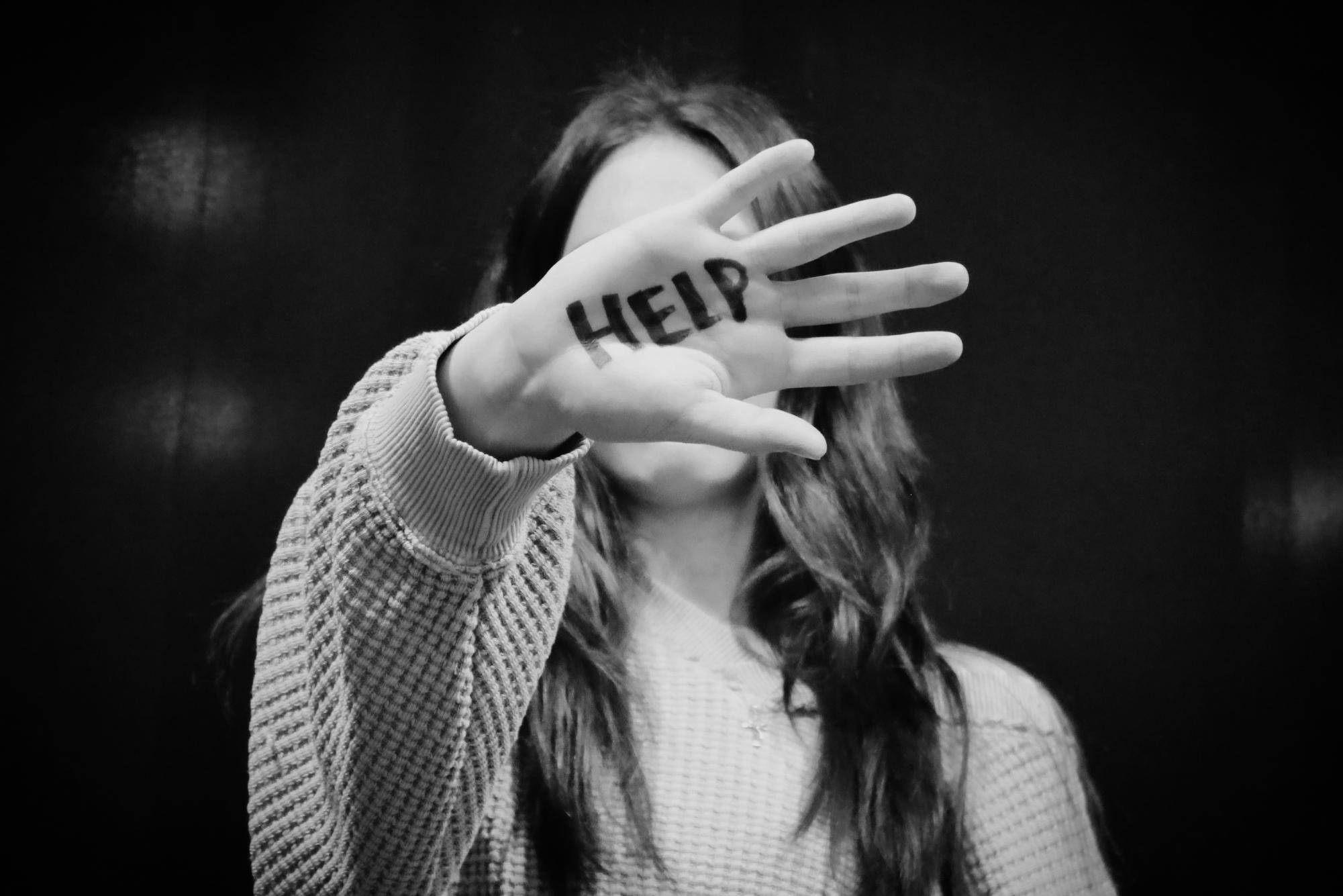
More than just a victim
Content Warning: This story retells the stories of teenage survivors of sexual assault.
Editor’s Note: The names of victims have been changed to protect their anonymity and are noted with an asterisk*.
There are students at MCHS that walk the halls everyday fighting battles we may never understand if we continue to sweep them under the rug. Survivors of sexual assault are often discouraged from speaking out about what they went through because of the stigma surrounding sexual assault. More than half of sexual assaults go unreported, and these people often carry the weight of their hardships on their own.
According to RAINN, women between the ages of 16 and 18 are 4 times more likely to experience sexual assault than any other gender or age group. These are high school students — kids, at MCHS and across the country — struggling with this, but for some reason, it is still considered an inappropriate subject for students to discuss.
We at The McHenry Messenger have interviewed multiple students who have experienced sexual assault, and though their names have been changed for their privacy, we hope their voices will reach anyone that needs to hear them, and teach others how to talk about it, confront it, as well as support survivors of sexual assault.
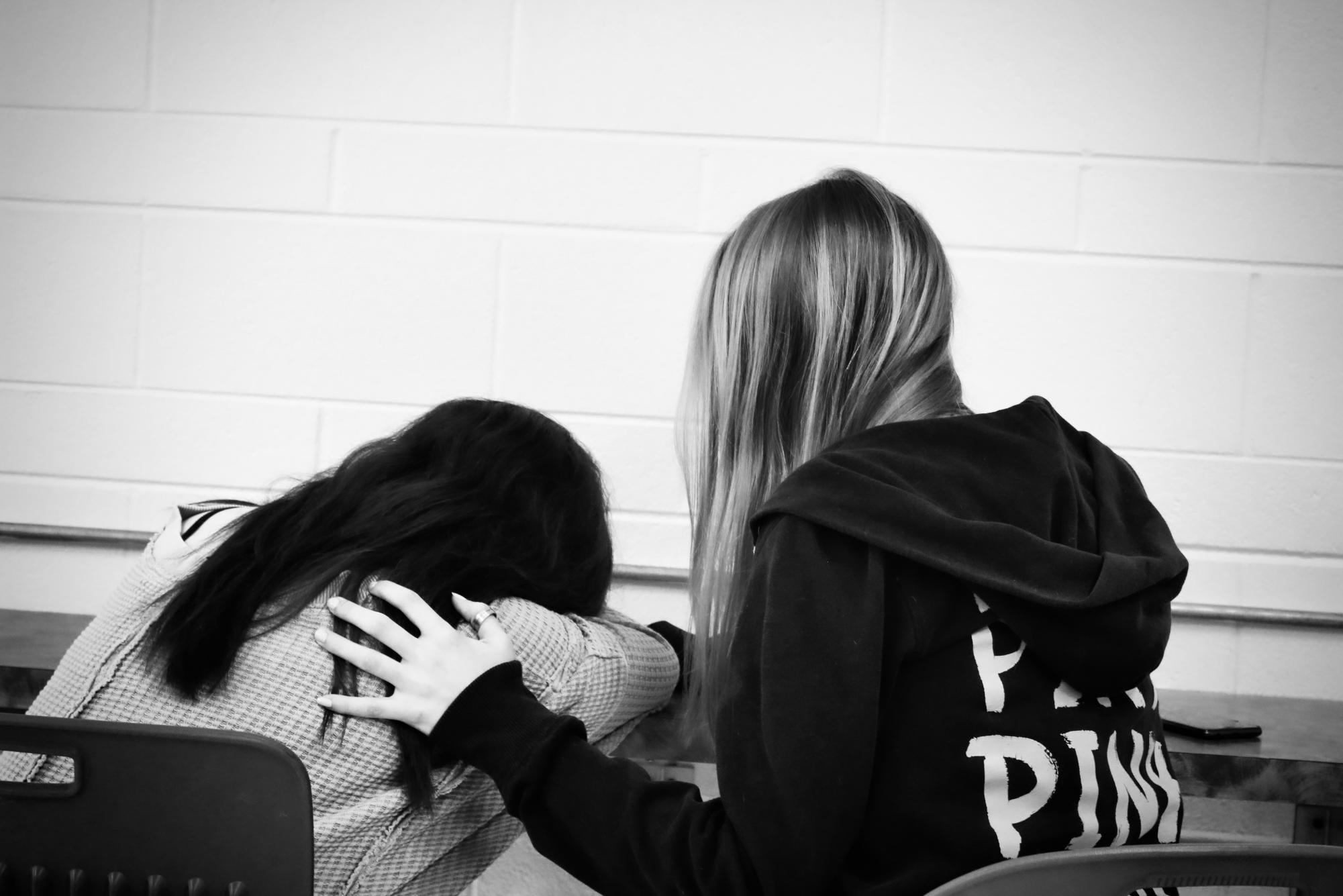
Within MCHS, if a student reports a sexual assault, they go through a process that, while intending to help them in the most efficient way possible, can be extremely overwhelming, and very inconsistent.
According to the school’s policy, from the moment that any staff or administrator learns about the incident onward, the victim should be referred to student resource officers. If they choose to pursue legal action, they will have to file a report with the police. Either way, the parents of the victim will be notified.
“If a student reports sexual assault to a staff member at MCHS,” says Assistant Principal of Student Services Patrice Frederick, “it is taken very seriously as our number one goal is to make sure that the student is supported and safe. In a typical process, this would involve a phone call home to a parent/guardian, involvement with our school resource officer, and support from a member of student services.”
If a victim chooses to pursue legal action, they will have to file a report with the student resource officer, though two of the three students we interviewed chose not to speak to the police about their case.
“I had [an administrator] tell my parents first while I was out of the room because I could not mentally sit there while they heard what happened to me,” said Lucy*, a student at MCHS and a survivor of sexual assault. “They were definitely shocked. They knew he was not a good guy, but they did not expect what happened between us.”
The process can vary depending on the circumstances of the incident and if the student who reports it wants to pursue legal action.
“This incident can have a wide range of circumstances surrounding the incident and report,” said Student Resource Officer, Christina Noyes. “Some of the circumstances that would surround how an officer, detective, or school resource officer would respond to a sexual assault include the age of the victim, age of the suspect, how delayed the report of the incident is, location of the incident, whether or not the victim still has contact with the suspect, proper police jurisdiction, cooperativeness of the victim, and how the victim wants to proceed.”
With so many people involved in the process, a lot of pressure and decision making is placed on the student which can leave them feeling stressed and confused.
“There is a lot of pressure,” said Eleanor*, another student at MCHS who experienced sexual assault, “like if you start talking about this, you need to figure out what you want to do about it. They were like ‘do you want to file a report? How far do you wanna go with this?’ and I was like ‘I don’t know.’ I just wanted help.”
To determine how to handle the situation, victims have to explain what happened to them several times. Restating their traumatic experience over and over again can be extremely exhausting, and they may even choose to forgough the whole process to avoid the interrogation that comes with it.
“There was a point where I was like … I do not want to keep having to explain this story so many times to different people,” said Eleanor. “I had so many days where I was just like ‘what do I do’ and ‘I’m not explaining this again right now, that is just gonna make me feel worse.’”
However, for those who do choose to pursue legal action against their perpetrator, the experience can be even more difficult.
“I think the court process was very hard,” said Lucy. “Even though I did have evidence, it was not ‘good enough.’”
Unfortunately, for those who do seek legal action, their perpetrator may face little to no consequences for what they did.
“They were trying to reduce his charges to make me give him a deal,” said Lucy. “We did not reduce the charges, but I still felt like they did not match up with what happened to me … he was not charged with anything sexual but with [a different crime].”
When a student reports a sexual assault, school administrators may be called to discipline the perpetrator if the incident took place on campus, but it is not their responsibility to give consequences in cases that take place off campus. Because of that, many perpetrators may not receive adequate discipline for their actions.
“I think that he got ‘talked to’ by one of his coaches,” said Eleanor. “[Administration] was very ‘Oh, we’re going to make sure he understands this is not okay’ … which I had a feeling was just a ‘do not do that and move on with life.’”
Compared to the overwhelming process a victim has to go through while reporting their story, a strict talk with a coach is a slap on the wrist. The victims we interviewed reported that, in their cases, the accused perpetrators face very little, if any discipline. However, it is also important to understand that survivors do not report only seeking consequences on their aggressor.
“Nothing happened to him,” said Julia*, a third student at MCHS who experienced sexual assault. “It was so long ago that there was not really anything I could do, but I was kind of okay with that.”
The preconceived idea that victims who report these experiences only do it to expose their perpetrator is wholly inaccurate. It is important to remember that these people are often not seeking persecution; they simply want to feel safe and supported.
“I kind of saw a pattern and I was scared for his future,” said Eleanor. “In a sense of, like, he cannot keep doing this in future interactions that he has … it was more … I wanted him to not necessarily be punished, but I wanted him to understand that this is not okay.”
The process a student has to go through when reporting an instance of sexual assault, whether they seek legal action or not, is both supportive and suffocating in it’s application. It is important to seek professional guidance, but the manner in which MCHS and other schools handle these situations places most of the pressure on the victims themselves. While they are right to focus on helping the victim first, at some points, opportunities to penalize the perpetrator are missed, which can feel like justice is put on the back burner.
Despite the fact that MCHS’s process can be overwhelming at first and can vary heavily case to case, it is still extremely beneficial to report sexual violence, assault, or harrassment, no matter how difficult it can be. The support MCHS offers can be helpful in reducing the mental toll sexual assault may take on a student.
“I had a big weight off my chest after being able to come forward and tell people,” said Julia*. “It was actually terrifying, but it was worth it.”
Despite the perception of sexual assault cases, it is important to remember that there are systems in place and experts who can help, and that the burden of that trauma does not need to be held in silence.
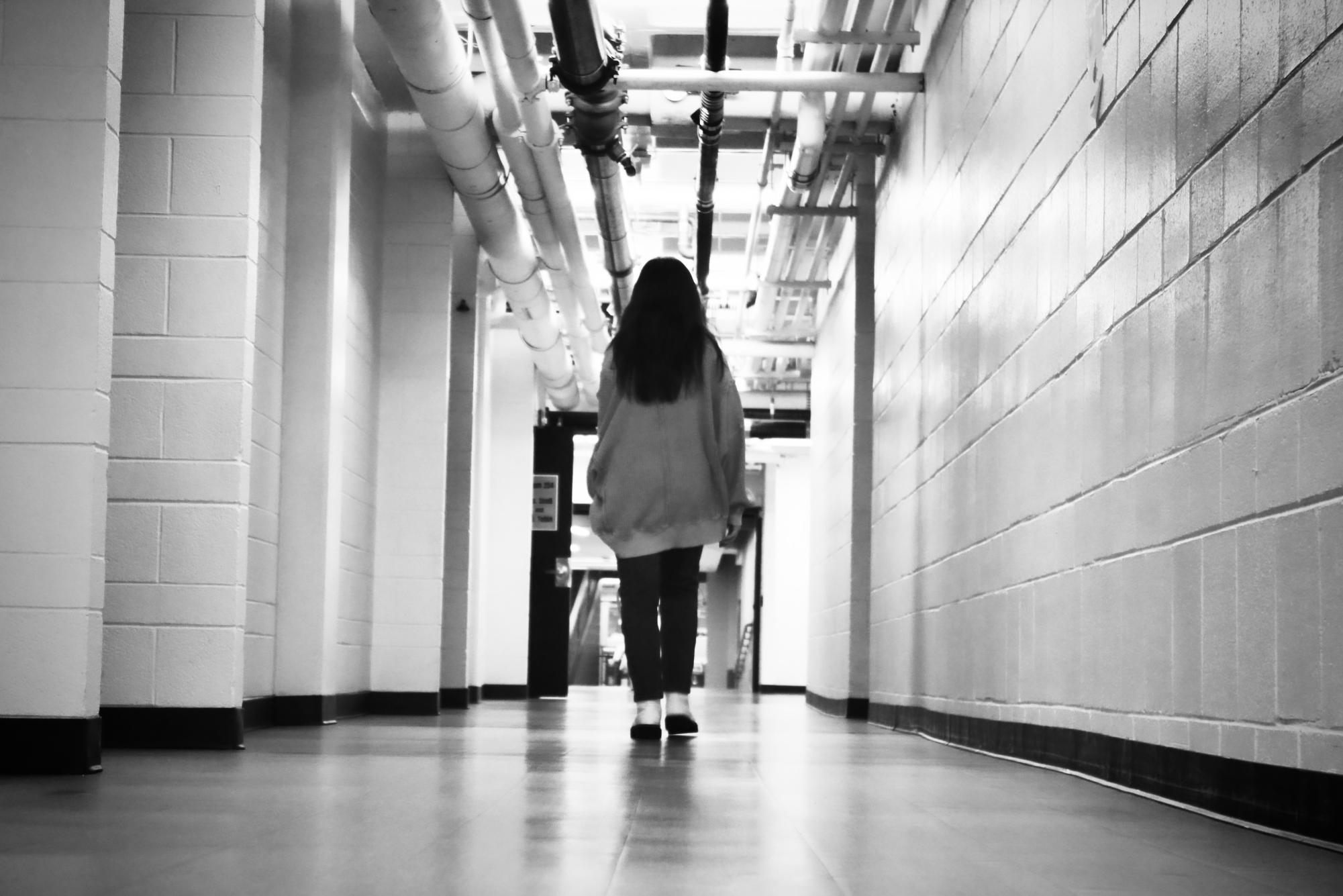
One of the most difficult parts about dealing with sexual assault is admitting to someone else that it has happened to you. It is a tough issue to confront because of the taboo nature of it.
The stigma around sexual assault is widespread, making it intimidating to reach out for help. People often treat survivors of sexual assault differently after the incident, failing to see them as more than their story or more than a statistic.
“I was a little worried at the beginning that people were just going to see me as a victim and not as a person,” said Julia.
When someone comes forward about a sexual assault, it can impact the relationships in their lives and cause rifts between them. No one wants to think about someone they love being hurt, or that someone they love could hurt someone else. Alarmingly, more likely than not, people who have experienced sexual assault know the perpetrator prior to the event itself.
When that trust is broken, it can be disorienting and leave the survivor feeling withdrawn and fearful that they might hurt other relationships by speaking out.
“I felt very isolated … I did not know what to do,” said Eleanor. “We had a lot of shared friends at the time and I knew if we broke up that I was going to lose so many people in my life … I just felt very alone.”
It can be hard mustering the courage to open up about something sensitive like sexual assault. It is a topic that holds a lot of stereotypes, confusion and uncertainty since it is rarely ever spoken about. Not everyone is equipped to help. The weight of the situation can leave the people they confide in unsure of how to comfort them, no matter how much they might want to.
“I told my best friend and she was like, ‘I’m sorry I do not know what to do for you, though. I have no idea how to help a person in this situation,’” said Eleanor. “She did not really know what to do so it kind of got swept under the rug. It became very hard and straining on our friendship.”
The culture surrounding sexual assault is merciless, oftentimes looking to place fault on the survivors themselves. When a survivor confides in someone else about their experience, it can be hard for that person to hear. Nobody wants to believe that someone they care about could go through that and, in trying to process the event, people can have an emotionally charged reaction. They can shift the blame as a defense mechanism, trying to make sense of what happened.
“My mom blamed me at first,” said Eleanor. “She was very angry at me that I let that happen to myself … but I guess at some point she started feeling bad for me, and I could tell she started being more sympathetic.”
Perpetrators and their social circles can have particularly volatile reactions when someone comes forward with a sexual assault accusation. Even if there is truth to the accusation, it is common for people to rush to the defense of their friend when their reputation is at stake.
“I did not go to school because I was scared,” said Lucy. “His entire friend group really decided to make my life terrible after the incident.”
A reason why sexual assault is often disregarded could be that it is hard to face a loved one’s faults. Allegations against a trusted individual can be such a shock that people turn to disbelief and denial. When the view they have of that person changes, it can be conflicting and cause them to react defensively.
“I got quite a few texts like, ‘Why did you let that happen?’” said Eleanor. “They were mad at me about it because he was upset.”
For survivors of sexual assault, it feels as though they have nowhere to turn. They fear the reactions that their loved ones will have, and the backlash they might face from others. Whether people overcompensate and define the person by what happened to them, or react with condemnation to completely push it out of their minds– oftentimes the potential for a poor reaction makes survivors hold back from telling people at all. To fight that stigma we need to welcome these people into an understanding environment, and learn how to properly react and support them.
“Be supportive and listen,” said MCHS school psychologist Tina Breitenbach. “Be careful of judgment…it is about listening and supporting because everything is individual. Some people are comfortable with reporting, some are not, but when they do, we should create an environment that is comforting and supportive.”
To welcome conversation about sexual assault, Breitenbach says we must educate ourselves and be understanding of people who have gone through it, but remember they are people first and foremost. We cannot define them by or blame them for what happened to them. We simply must listen, comfort, and support them. No matter how difficult it may be to hear, it is better for it to have been spoken about than to have been carried alone.
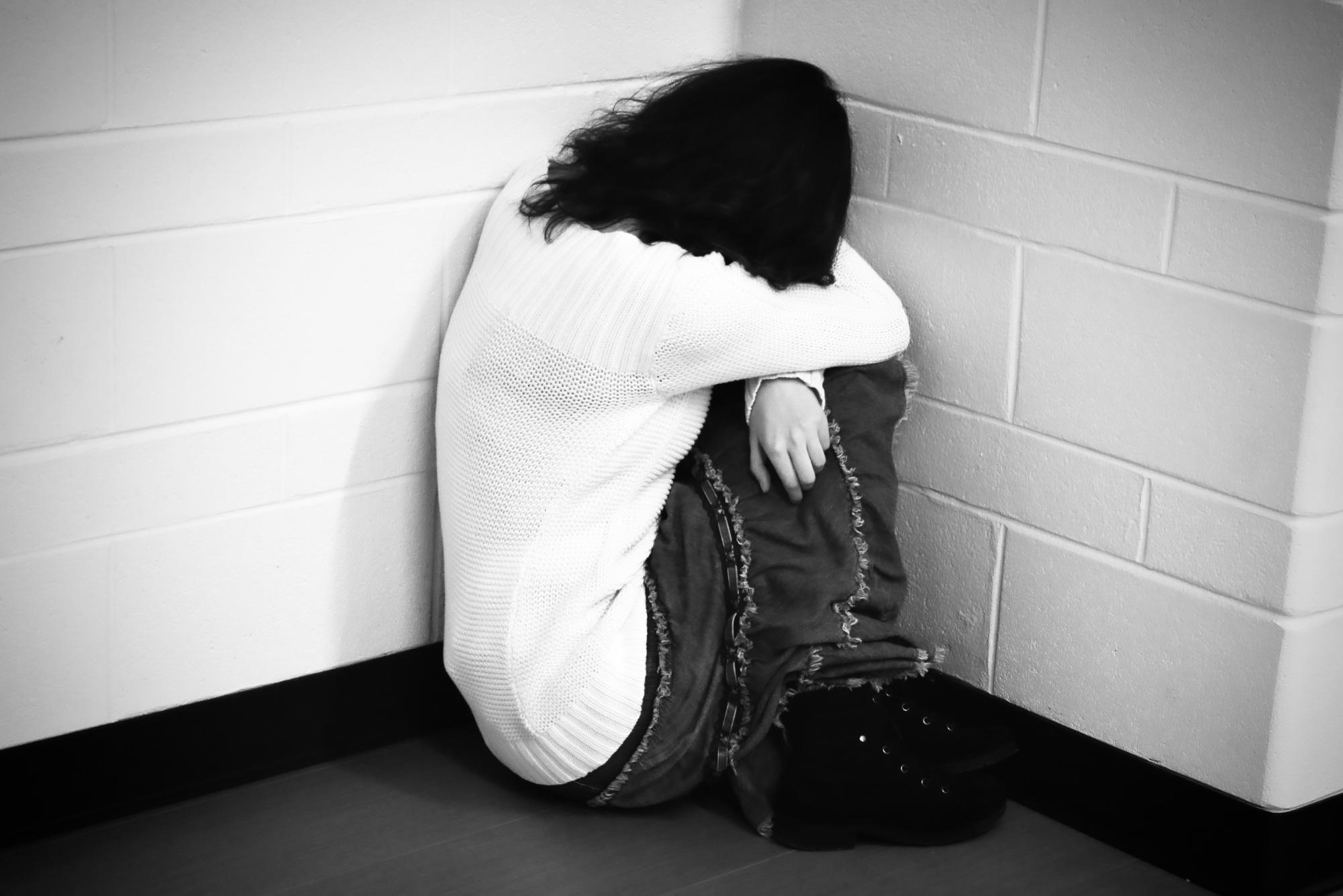
Conversations about sexual assault spread awareness about how it impacts survivors and encourage them to seek help. Experiences like these are closer to home than we realize. Sexual assault is not just a breaking news story from somewhere across the country; it happens in our own community and school.
“People think it is such a hard thing to talk about, like it is such a ‘hush, hush’ thing when we know people in our [school] have had it happen to them,” said Julia.
Sexual assault is all too common an experience among teenagers and young adults, though many culprits never face accountability for their actions. Perpetrators continue to go on with their lives while survivors are stuck with the weight of their trauma affecting them in their everyday lives.
Survivors of sexual assault can experience long-term effects after the incident that can make it hard to return to “normal life.” According to The National Library of Medicine, sexual abuse can be detrimental to someone’s mental health in numerous ways, especially disrupting the development of minors who are vulnerable while they are still maturing.
People who go through sexual assault are 4 times more likely than non-victims to abuse drugs and other substances as a coping mechanism. Additionally, the event makes an individual equally as likely to experience Post-Traumatic Stress Disorder.
We have an obligation to educate ourselves and others on how to aid survivors of sexual assault in order to address the toll it can take on a victim’s mental state. Opening a dialogue about sexual assault can call attention to the frequency of the issue, the struggles survivors’ face, and the way in which it is handled.
Raising awareness to sexual assault and its presence is the first step to preventing it. Currently, the culture around sexual assault and harassment is passive and dismissive. In our everyday lives, rhetoric is spread attempting to disprove survivors of sexual assault. Society’s attitude towards it is to downplay their experiences, excusing the actions by placing the responsibility on the victim to prevent the incident or process the event.
Sexual assault is normalized in every day life. Whether intentionally or not, people often see it as an unavoidable fact of life or the butt of a joke. The language we use and the way we talk about sexual assault molds our views on it. Sexual assault is a deep-rooted issue in society that can come in many forms, and allowing it to be disregarded gives it capacity to persist without consequence.
“Looking back at it, I should have known from the start when [girls] told me, ‘Oh, do not wear a tank top to his house the first time you hang out’ and just weird stuff like that,” said Eleanor.
Undermining and overlooking sexual assault only furthers its grip on society. Treating the issue as something to be ashamed about or something that is forbidden to discuss can lead many to keep their experience to themselves, letting the emotions and traumatic effects intensify. When people share their stories of how sexual assault has personally impacted them, it can give others the strength to open up as well.
“I have had a few girls come up to me and say ‘I am proud of you for coming forward. I have had similar experiences and I am scared to come forward’,” said Lucy.
Sexual assault is an issue many are familiar with firsthand, but few speak out about. The attitude about sexual assault in society, especially in high schools, is one that blames the victim, accepts the actions of the aggressor as “normal”, and silences voices of survivors “for their own good”. We need to educate ourselves and normalize being outspoken about it because if we continue to ignore it it will only become a more common occurrence.
It is important to understand that sexual assault is not a monster under your bed. It is very real, common, and present in our own community.
“It probably happens more than you or I know,” said Rick Rewiako, another SRO from MCHS.
Acknowledging the presence and influence of sexual assault can help put a stop to the normalization of its culture and allow for the possibility to explore the nuances and misconceptions of sexual violence. Sexual assault is a systemic issue, and ignoring it only lets it continue.
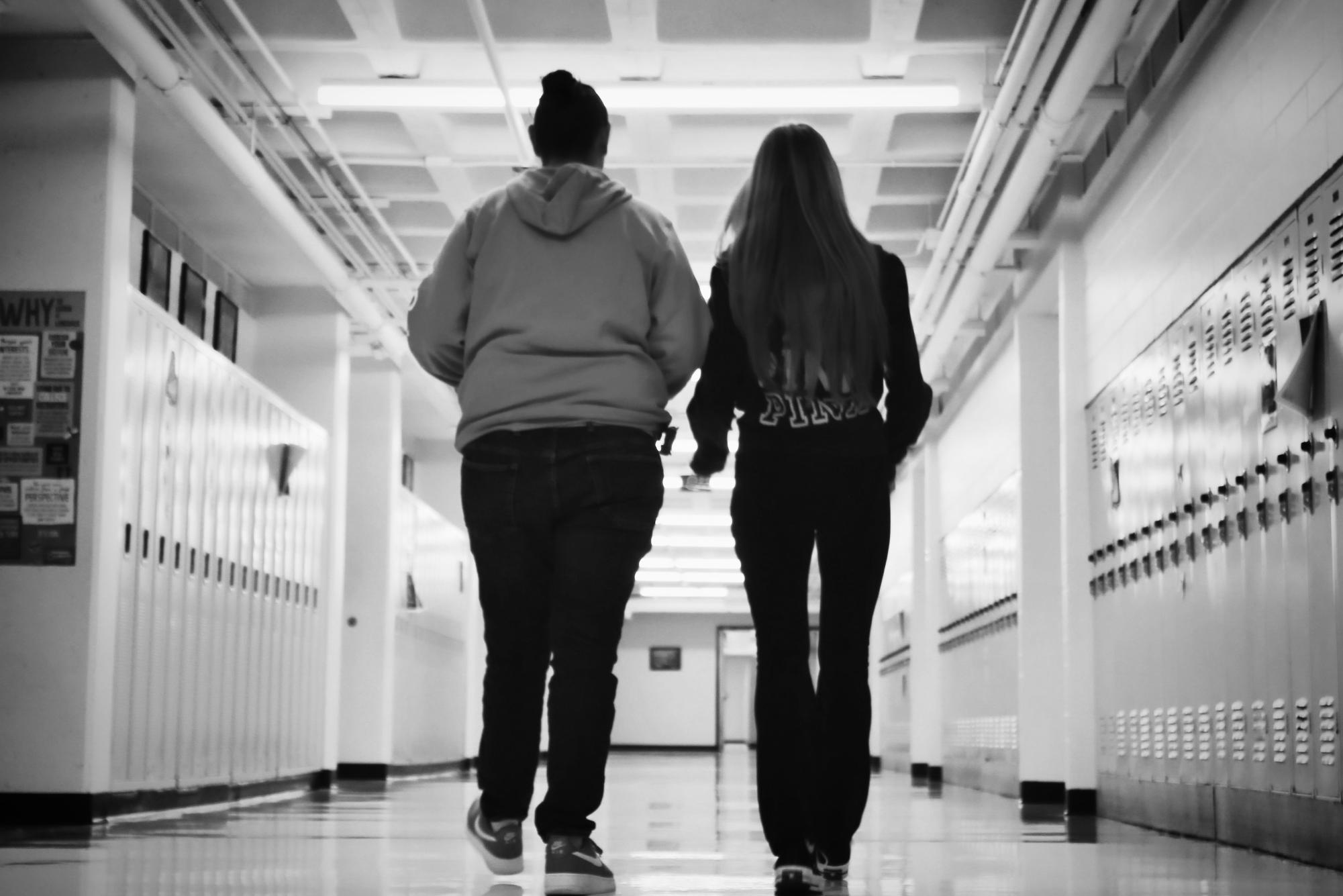
At the end of each interview, we asked these survivors “if someone reading this article has gone through a similar experience as you, what would you say to them?” Resoundingly, they encouraged anyone dealing with the trauma of sexual assault to seek support and let their voice be heard.
“Just come forward,” said Julia. “It is absolutely terrifying at the beginning but it is so worth it. It can be scary at first, but in the long run it is so rewarding.”
Although it is hard to come forward with a sexual assault allegation, speaking out about what happened can be critical in moving forward. Each experience and each person is entirely individual, and the help they need to receive to overcome what happened to them may be drastically different from other survivors, but that help cannot be given unless they reach out for it.
“I know how to calm myself down now,” said Eleanor, “and I think that is such an important part of it; getting support so that you learn how to cope with it … It is so hard to do, but it is something you have to do to get better, at least for me.”
Fighting an inner battle like the one that comes with experiencing sexual assault is one of the most difficult things someone can go through, and it is important to know it is not a battle that needs to be fought alone.
“I think I am glad that I told people because I think it would have eaten me alive,” said Eleanor. “If you do not tell someone that can be there for you and actually support you, then it is going to be so hard.”
However, even after opening up, it is an everyday struggle. The effects of the sexual assault can be carried with the survivor throughout their life.
“If this is still affecting you, you need to go through the process,” said Lucy, “get help, get support, bring it to court because those feelings are going to stick with you.”
That being said, living with these feelings and this trauma is possible. Sexual assault does not define its survivors, they define themselves, and though they may have to carry the weight of what happened to them, the load can get lighter with the right support and help.
“It gets better but it does not get better for a while,” said Eleanor. “It still affects me to this day, like I can say that I am fine … I do things to try to prove I am okay to myself.”
Overcoming an experience such as a sexual assault can be tough, and it can change how a survivor navigates their daily life. If someone you know has been sexually assaulted or experienced sexual harassment, be understanding of them. Be there for them and do your best to support them. Do not blame them for what happened to them, and try not to define them as a “victim”.
If you have been assaulted, we encourage you to report to your school, the police, or any trusted adult who may be able to guide you in the right direction to find aid in your situation. The CARE Center in McHenry provides free services and 24 hour crisis intervention and will provide safe and understanding help to anyone.
These survivors are real people. They are friends, students, athletes, teachers, and parents. They are not defined by what they have endured. They are more than just victims, and it is due time to acknowledge them.
Are you a victim of sexual violence, assault, or harrassment? Here’s a list of resources recommended by MCHS student services:
CARE Center, a Satellite of Northwest Center Against Sexual Assault
4508 Prime Parkway in McHenry
1 (888) 802-8890
Center for Emotional Wellness of the Northwest Suburbs
800 S. McHenry Avenue, Suite F in Crystal Lake
1 (815) 526-3750
centerforemotionalwellnessnorthwest.com
Lodestone Center for Behavioral Health
111 Dean Street in Woodstock
1 (815) 344-5061

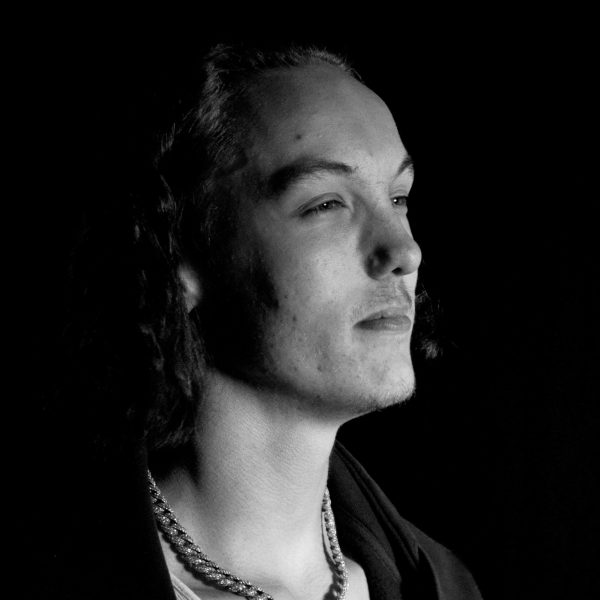





Brianna • Feb 14, 2024 at 11:54 am
I was at MCHS last year, if I had the kind of support that I needed my life would have been a lot easier. This is incredibly well written. The way that the author Leylah Moreno captures the way that it feels to be in the situation is incredible. She’s turned school journalism into something much more, and opened the door for a much-needed discussion. As Well as making it possible to talk about many more topics that are necessary and beneficial to the student body.